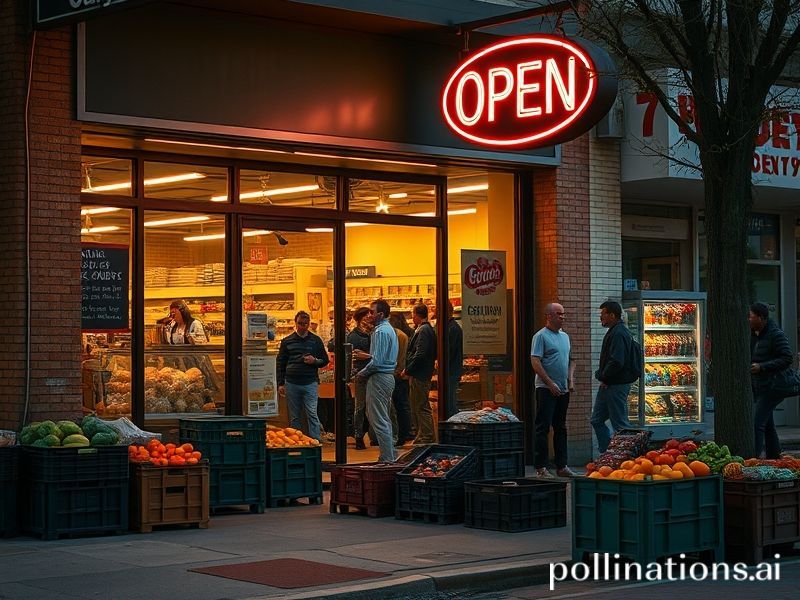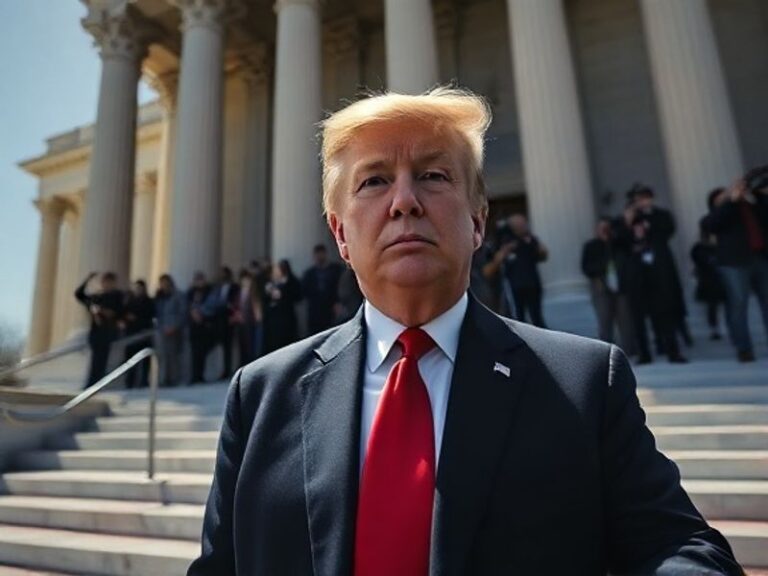Global Cartography of Hunger: What ‘Grocery Near Me’ Really Reveals About Our Imploding World
SÃO PAULO—Somewhere between the papaya-colored favela lights and the 24-hour sushi robots, I found myself asking an algorithm for “grocery near me.” The phone, ever the obedient courtier, spat back a map studded with red pins: a Carrefour the size of Liechtenstein, a Korean mom-and-pop that doubles as a cryptocurrency exchange, and, for the romantics, a roving avocado cart whose owner accepts payment in Instagram stories.
It struck me that this humble query—once muttered to a corner butcher who knew your cholesterol by smell—has become a geopolitical Rorschach test. In Paris, the same phrase summons an app promising carbon-neutral asparagus delivered by cargo bike; in Kyiv, it pings volunteers who bike onions through curfew checkpoints. From Lagos to London, we are all typing the same three words into the void and getting back a personalized atlas of our particular dystopia.
Consider the supply chain, that Rube Goldberg contraption of container ships, migrant labor, and spreadsheet jockeys. When you tap “grocery near me,” you are effectively asking it to collapse centuries of colonial spice routes, Cold-War shipping lanes, and post-Brexit paperwork into a 12-minute ETA. Somewhere in the Malacca Strait a seafarer’s overtime hinges on your craving for oat milk; in Rotterdam, a customs agent’s hangover decides whether Dutch cucumbers live or die. The algorithm doesn’t mention them, of course—it’s too busy optimizing your serotonin with pictures of perfectly bruised bananas.
Meanwhile, the store itself has become a miniature United Nations where the produce section stages quiet coups. Peruvian blueberries overthrow last week’s Moroccan ones; Turkish cherries arrive with propaganda about their NATO bid. The freezer aisle is a frozen conflict zone: Russian pollock keeps uneasy peace beside Norwegian cod, both awaiting sanctions like war criminals in cryo-sleep. And every barcode is a passport subject to sudden revocation—ask any Russian cheese that woke up persona non grata in March 2022.
Humanity’s talent for adaptation never disappoints. In Tokyo, vending machines hawk $8 strawberries individually wrapped like debutantes; in Detroit, urban farmers grow kale on former crack-house lots, gentrifying both soil and sin. Venezuelans, veterans of currency collapse, now measure prices in eggs, proving Marx right—just not the way he intended. And in Delhi, housewives run WhatsApp co-ops that route around both inflation and patriarchy, achieving what the WTO never could: free trade without the PowerPoints.
Yet convenience has its own body count. The gig cyclists racing your sushi through Istanbul traffic sustain injuries we quantify in stars and forget in 30 minutes or less. Somewhere in the Andes, quinoa farmers can no longer afford the crop once dubbed “Inca gold,” having exported their birthright to Brooklyn brunch tables. And every plastic clamshell that once cradled cherry tomatoes will outlive the toddler screaming for them—a legacy snack for future archaeologists.
Still, the ritual endures. We stand in fluorescent aisles, Wi-Fi flickering like cheap absolution, comparing unit prices as though the difference between 2.99 and 3.49 could patch the ozone layer. We pretend the organic label absolves us of planetary sin, much like buying indulgences with a loyalty card. And when the self-checkout robot freezes at “unexpected item in bagging area,” we experience a moment of global solidarity: from Lagos to London, humans united in mutual contempt for a machine that can’t recognize a baguette.
So the next time you whisper “grocery near me” into the surveillance rectangle you call a phone, remember you’re not just feeding yourself. You’re voting with your wallet in a planetary plebiscite on who gets exploited, refrigerated, or re-branded next. The bananas are watching; the avocados already know your sins. Choose wisely—or at least ironically. After all, every apocalypse deserves a well-stocked pantry.







